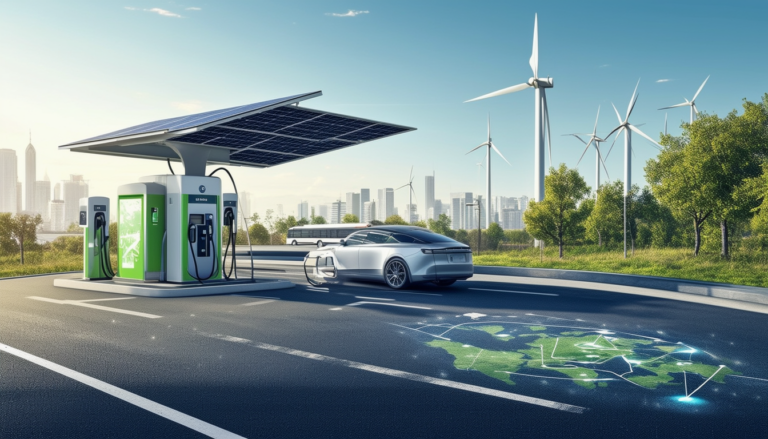Análisis de costos: gasoline vs. electric
Currently, the choice between gasoline vehicles and electric vehicles has become a topic of great relevance for consumers and the automotive sector. The discussion focuses not only on the environmental impact but also on the cost analysis associated with each type of car. As technology advances and energy prices evolve, it is crucial to examine the efficiencies and operating costs of both options to understand which represents a more viable long-term alternative.
The comparison between gasoline-derived and electric vehicles has become a matter of great importance for consumers and the automotive industry. This analysis focuses on the differences in costs and performance between both types of cars. It is essential to make informed decisions to adapt to a more sustainable and profitable future.
Fuel costs vs. electricity costs
One of the most significant aspects in the cost comparison is the price of fuel. Gasoline has an average cost that can range between $3 and $5 per gallon, depending on the region and market fluctuations. On the other hand, the cost of charging an electric vehicle is considerably lower, as it can vary between $0.10 and $0.30 per kilowatt-hour. This implies an average expense of between $4 and $10 for a full charge, depending on the battery capacity.
Long-term cost comparison
The initial investment in an electric vehicle is often higher, but a thorough cost analysis reveals that, in the long run, electric cars offer significant savings compared to fossil fuel vehicles. This is due not only to the lower charging costs but also to savings in maintenance, as electric cars tend to require fewer mechanical services.
Energy efficiency in comparison
Electric vehicles have proven to be much more energy efficient. According to studies, the average range of a gasoline car is approximately 400 km per tank, while an electric car can cover the same distance using around 60 kWh. This highlights the importance of considering not only the cost of fuel but also the energy efficiency of each type of vehicle.
Maintenance and operating costs
Maintenance is a crucial factor to consider in this analysis. While a gasoline vehicle requires frequent oil changes and engine repairs, electric cars have fewer moving parts, which significantly reduces maintenance costs. This savings in operating costs is a point in favor of electric cars in terms of overall economy.
Environmental impact and hidden costs
In addition to direct costs, it is essential to consider the environmental impact. Gasoline vehicles emit a considerable amount of pollutants, which entails costs related to public health and the environment. Electric cars, although they also have an impact, tend to be more sustainable in the long run, translating into economic advantages as sustainability policies are implemented.
Conclusion on cost analysis
The decision between an electric vehicle and a gasoline one is not only based on the purchase price but on a more comprehensive analysis that includes operating costs, maintenance, and environmental impact. This analysis provides a clear view of how mobility choices can influence savings and the well-being of the planet, benefiting not only the consumer but also the community as a whole.
For those seeking more information on how to avoid unnecessary expenses, it is recommended to explore articles detailing the use of technology to measure fuel consumption and the impact of maintenance on fuel efficiency. It may also be useful to review the main sources of energy and their efficiency.
The choice between an electric car and a gasoline one not only impacts the wallet but can also be influenced by current energy policies, leading to a more sustainable future.
When evaluating the operating costs of gasoline cars compared to electric cars, it is essential to consider several factors that influence long-term economics. Firstly, energy costs are decisive; while fuel for vehicles can be exorbitant depending on market fluctuations, the cost of electricity is generally more stable and significantly lower. This difference translates into considerable savings when charging an electric car compared to filling a gasoline tank.
Furthermore, the maintenance of electric vehicles tends to be less expensive because they have fewer moving parts and do not require oil changes or other frequent interventions that combustion engines do. Therefore, in the long run, electric car users can enjoy a lower maintenance cost, contributing to the reduction of overall expenses.
However, it is also important to consider the availability of infrastructure. As of today, the network of gas stations is more extensive and accessible than charging stations for electric vehicles in many regions, which makes traveling easier and can be a decisive factor for drivers needing more flexibility. In this sense, the range of electric vehicles is constantly improving but can still be a point to consider for some users.
In summary, although the initial investment for an electric car may be higher, the operating and maintenance costs tend to be lower in the long run. This makes the electric option increasingly attractive to consumers looking to reduce their expenses and carbon footprint. Evaluating these elements is crucial for making an informed decision tailored to each individual’s mobility needs.




